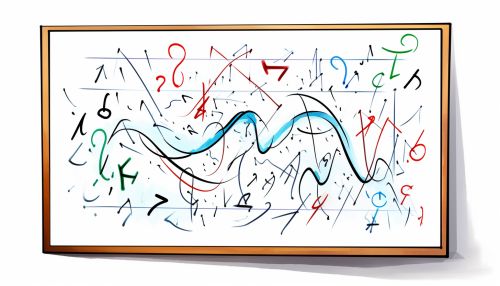Optimization
Overview
Optimization is a branch of mathematics that focuses on finding the best solution from a set of available alternatives. It is a process of making something as effective or functional as possible, often with the goal of maximizing or minimizing a particular function. This field has wide applications in various disciplines such as economics, engineering, computer science, and operations research, among others.


Mathematical Optimization
Mathematical optimization, also known as mathematical programming, is a branch of applied mathematics that deals with the problem of finding the best possible solution from a set of available alternatives. It involves selecting the best element from a set of available alternatives, given a defined criterion. The criterion, also known as the objective function, can be either maximized or minimized depending on the problem at hand.
Types of Mathematical Optimization
There are several types of mathematical optimization, each with its own set of techniques and applications. Some of the most common types include:
- Linear programming: This is a method to achieve the best outcome in a mathematical model whose requirements are represented by linear relationships. It is one of the simplest ways to perform optimization as it simplifies the complexities of the real world into a linear equation.
- Nonlinear programming: This is a process to solve optimization problems where the objective function or the constraints are nonlinear. It is a broader and more general field than linear programming.
- Integer programming: This is a mathematical optimization program in which some or all the variables are restricted to be integers. It is a subfield of linear programming but it is more complex and computationally intensive.
- Convex optimization: This involves minimizing a convex function over a convex set. The significance of convex optimization lies in its applicability to a wide range of disciplines.
- Stochastic optimization: This is used when the optimization problem is subjected to random noise or disturbances. It is widely used in fields like finance and operations research.
Applications of Optimization
Optimization has a wide range of applications in various fields. Some of the most notable applications include:
- In economics, optimization is used to find the best allocation of resources to achieve the maximum output for a given input.
- In engineering, optimization can be used to find the best design parameters that satisfy project requirements and constraints.
- In computer science, algorithms are often optimized to improve their performance in terms of speed and resource usage.
- In operations research, optimization is used to find the best possible solution for complex decision-making problems.
Optimization Techniques
There are several techniques used in optimization to find the best possible solution for a given problem. These techniques can be broadly classified into deterministic and stochastic methods.
Deterministic Methods
Deterministic methods are those where the result is completely determined by the input. These methods are typically used when the problem is well-defined and the objective function is deterministic. Some of the most common deterministic optimization methods include:
- Gradient descent: This is a first-order iterative optimization algorithm for finding the minimum of a function.
- Newton's method: This is a root-finding algorithm that produces successively better approximations to the roots of a real-valued function.
- Simplex method: This is a popular algorithm for linear programming.
Stochastic Methods
Stochastic methods are those where the result is not completely determined by the input. These methods are typically used when the problem is not well-defined or the objective function is stochastic. Some of the most common stochastic optimization methods include:
- Simulated annealing: This is a probabilistic technique for approximating the global optimum of a given function.
- Genetic algorithm: This is a search heuristic that is inspired by Charles Darwin’s theory of natural evolution.
- Particle swarm optimization: This is a computational method that optimizes a problem by iteratively trying to improve a candidate solution.
